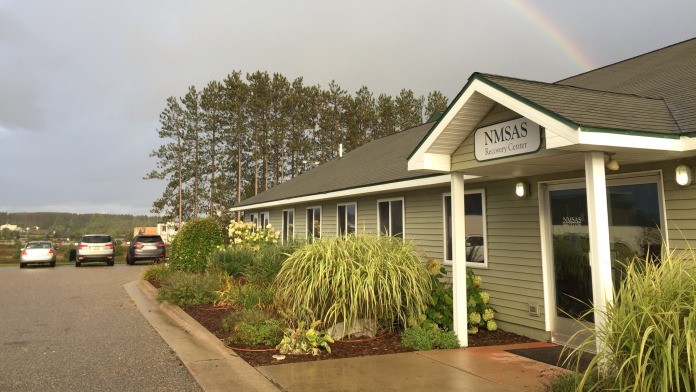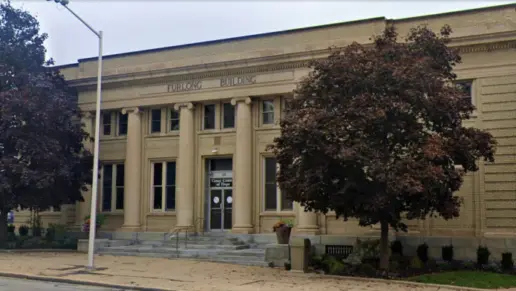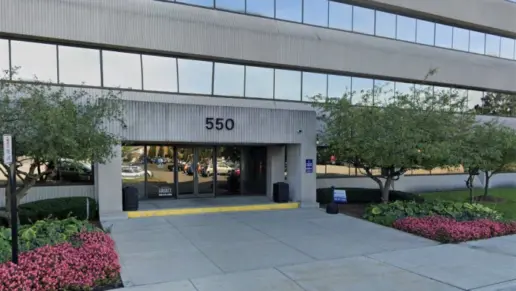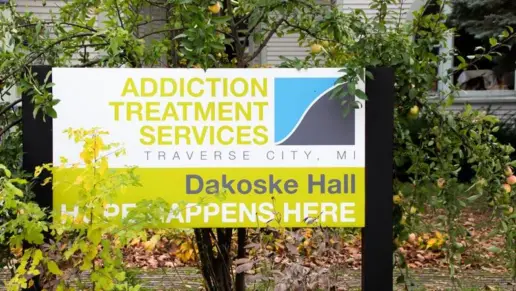About NMSAS Recovery Center
The NMSAS Recovery Center is in Gaylord, Michigan. You'll find 'em tucked away in a quiet corner away from the busy downtown. This nonprofit organization started up around the mid 2010s and welcomes adults battling substance misuse and co-occurring mental health conditions. You can access comprehensive outpatient services while living at home.
Their center is pretty nice and comfortable. Their floorplan allows for wide open spaces that allow camaraderie, and the furniture is plush and resembles a home. The decor and the natural colors can help you unwind.
Their program offers lots of support to guide you through recovery. You can participate in group, individual, and family counseling. There’s also medication assisted treatment (MAT) and peer programs. Their case management team will coordinate your care and help you develop coping skills to recognize and change your behaviors.
For me, their case management services really stood out. They understand that inadequate healthcare, housing, employment, and transportation can all stand between reaching sustained recovery. You’ll benefit from customized approaches to recognize and obtain the services and resources to enhance your journey. Your case manager and care coordinator will work with local providers to ensure you get the help you need.
They also have a neat MAT program to manage withdrawal symptoms and cravings. They prescribe buprenorphine, methadone, and naltrexone. You’ll benefit from integrated care with counseling and recovery support. However, you should know that their supply of buprenorphine may be limited and to plan accordingly.
There’s also free Narcan. You can help yourself to their dispensary in the parking lot, which allows you to keep your privacy. There are self-training videos available so you’ll know how to use it should a relapse or an overdose happen. You might end up saving the life of a loved one.
It’s pretty cool that they have flexible payment options. They accept many major insurance providers, Healthy Michigan Plan, Medicaid, and Medicare. You can still get the help from ’em even if you don’t have insurance.
Latest Reviews
Rehab Score
Gallery

Location
Other Forms of Payment
Medicaid is a state based program that helps lower-income individuals and families pay for healthcare. Medicaid covers addiction treatment so those enrolled can use their coverage to pay for rehab. When a program accepts Medicaid the client often pays very little or nothing out of their own pocket.
Private insurance refers to any kind of healthcare coverage that isn't from the state or federal government. This includes individual and family plans offered by an employer or purchased from the Insurance Marketplace. Every plan will have different requirements and out of pocket costs so be sure to get the full details before you start treatment.
Self-pay involves paying for treatment out of your own pocket. You can use savings or credit, get a personal loan, or receive help from family and friends to fund your treatment. If you don't have insurance or your insurance plan doesn't cover a specific program, self-pay can help ensure you still get the care you need.
Financial aid can take many forms. Centers may have grants or scholarships available to clients who meet eligibility requirements. Programs that receive SAMHSA grants may have financial aid available for those who need treatment as well. Grants and scholarships can help you pai for treatment without having to repay.
Addiction Treatments
Levels of Care
Treatments
The goal of treatment for alcoholism is abstinence. Those with poor social support, poor motivation, or psychiatric disorders tend to relapse within a few years of treatment. For these people, success is measured by longer periods of abstinence, reduced use of alcohol, better health, and improved social functioning. Recovery and Maintenance are usually based on 12 step programs and AA meetings.
Drug rehab in Michigan provides personalized treatment to help individuals break this cycle and regain control of their lives. Treatment methods are used in various levels of care, including inpatient rehab, partial hospitalization programs, intensive outpatient programs, and standard outpatient treatment.
Opioid rehabs specialize in supporting those recovering from opioid addiction. They treat those suffering from addiction to illegal opioids like heroin, as well as prescription drugs like oxycodone. These centers typically combine both physical as well as mental and emotional support to help stop addiction. Physical support often includes medical detox and subsequent medical support (including medication), and mental support includes in-depth therapy to address the underlying causes of addiction.
Substance rehabs focus on helping individuals recover from substance abuse, including alcohol and drug addiction (both illegal and prescription drugs). They often include the opportunity to engage in both individual as well as group therapy.
Programs


Clinical Services
Group therapy is any therapeutic work that happens in a group (not one-on-one). There are a number of different group therapy modalities, including support groups, experiential therapy, psycho-education, and more. Group therapy involves treatment as well as processing interaction between group members.
Trauma therapy addresses traumatic incidents from a client's past that are likely affecting their present-day experience. Trauma is often one of the primary triggers and potential causes of addiction, and can stem from child sexual abuse, domestic violence, having a parent with a mental illness, losing one or both parents at a young age, teenage or adult sexual assault, or any number of other factors. The purpose of trauma therapy is to allow a patient to process trauma and move through and past it, with the help of trained and compassionate mental health professionals.
Contact Information
2136 West M32
Gaylord, MI 49735


